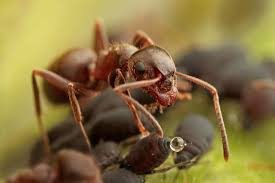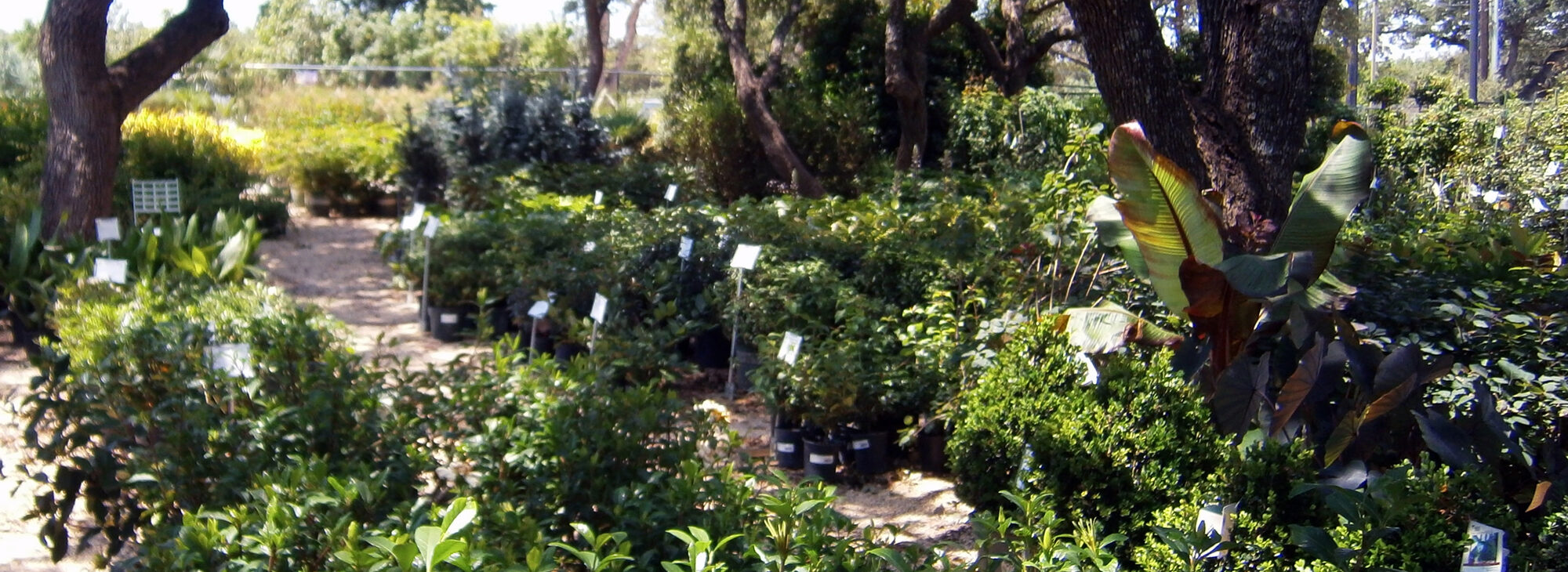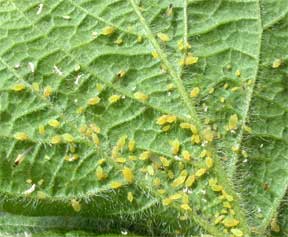Awful Aphids!
Raining Trees?
Have you ever walked underneath a crape myrtle and thought "Oh, it's sprinkling!" and then wondered why it was only raining under the tree? Hate to break it to ya, but you just got pooped on by aphids. GROSS!
That's not the only thing you might notice when these tiny pests are around. Aphids are one of our #1 pest complaints here at the nursery. Fortunately, they are not too difficult to get rid of.
How to Spot Them
Aphids are tiny soft bodied critters that suck the sap out of plants. There are over 4,000 different species and are many different colors including green, yellow, brown, black or even red! Some have a smooth body while others have a waxy or woolly coating.
These little beasties will go after any juicy plant available. Some of the signs you might notice are:
- curled misshapen or yellow leaves
- deformed flowers or fruit
- ants hanging out on your plants
- shiny, sticky looking leaves
- black powdery leaves
Curly, deformed or yellow leaves may mean aphids are hiding on the underside of the foliage. Go take a peek! They can also damage flowers and fruit as they form. Many times, folks will see ants on their plants and think that they are the culprit.
Here's the real reason they're there- ants like to keep aphids as pets! Kinda. It's more like farming. The ants will protect aphids from predators because they benefit from them. As aphids feed on plant sap they secrete a substance called honeydew. (Remember the raining poopy crape myrtle? That's really what it is.)
 Honeydew is sticky and sweet and ants feed off of it. They even "pet" the aphids to get more of the stuff out of them! This is why you sometimes see wet, shiny looking leaves on plants that are infested. It can also leave a sticky layer of goo on your car or driveway. Honeydew can encourage a fungal growth called sooty mold, hence the black powdery leaves that sometimes appear.
Honeydew is sticky and sweet and ants feed off of it. They even "pet" the aphids to get more of the stuff out of them! This is why you sometimes see wet, shiny looking leaves on plants that are infested. It can also leave a sticky layer of goo on your car or driveway. Honeydew can encourage a fungal growth called sooty mold, hence the black powdery leaves that sometimes appear.
What Now?
So how do you get rid of 'em? There are many easy solutions to aphid issues. Here are a few from simple to hardcore:
- Is it just a few? Just pinch or snip off the affected leaves.
- Spray aphids with a hard blast of water. Once you've knocked them off, they generally have a hard time crawling up the same plant again.
- Release the ladybugs! Ladybugs love to eat aphids. Release them at the base of the plant in the evening and say "buh-bye".
- Spray 'em with a soapy water solution. Easy peasy.
- Use diatomaceous earth. This powdery substance is organic and will also keep slugs, beetles and fleas at bay.
- Use an organic spray such as Spinosad or Insecticial Soap.
- Use a traditional spray such as Cyonara or any pyrethrin based product.
Still not sure which method to use? Or not sure those are even the right bugs? Bring us a sample and we can help you find the best solution. See ya soon at The Garden Center!


